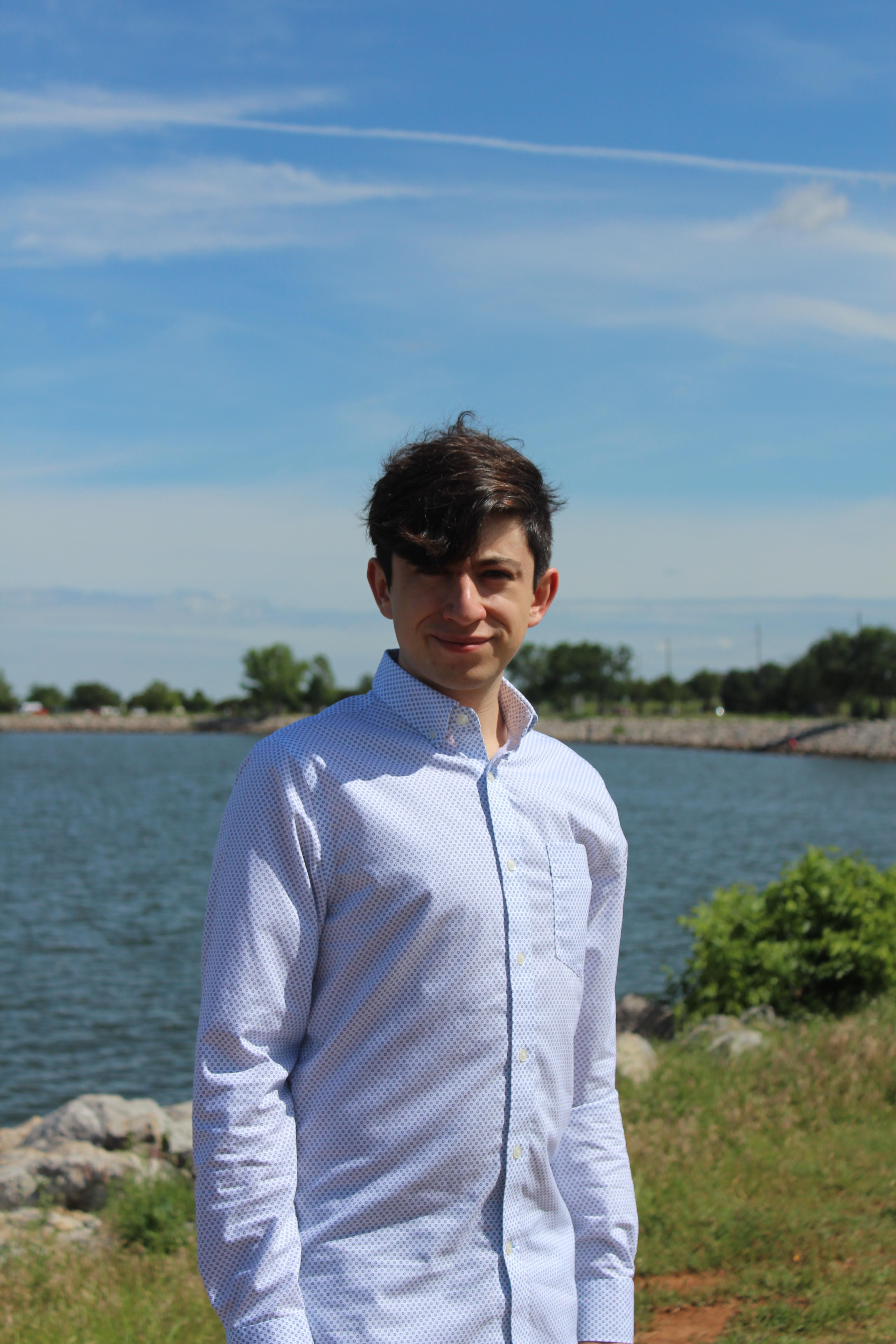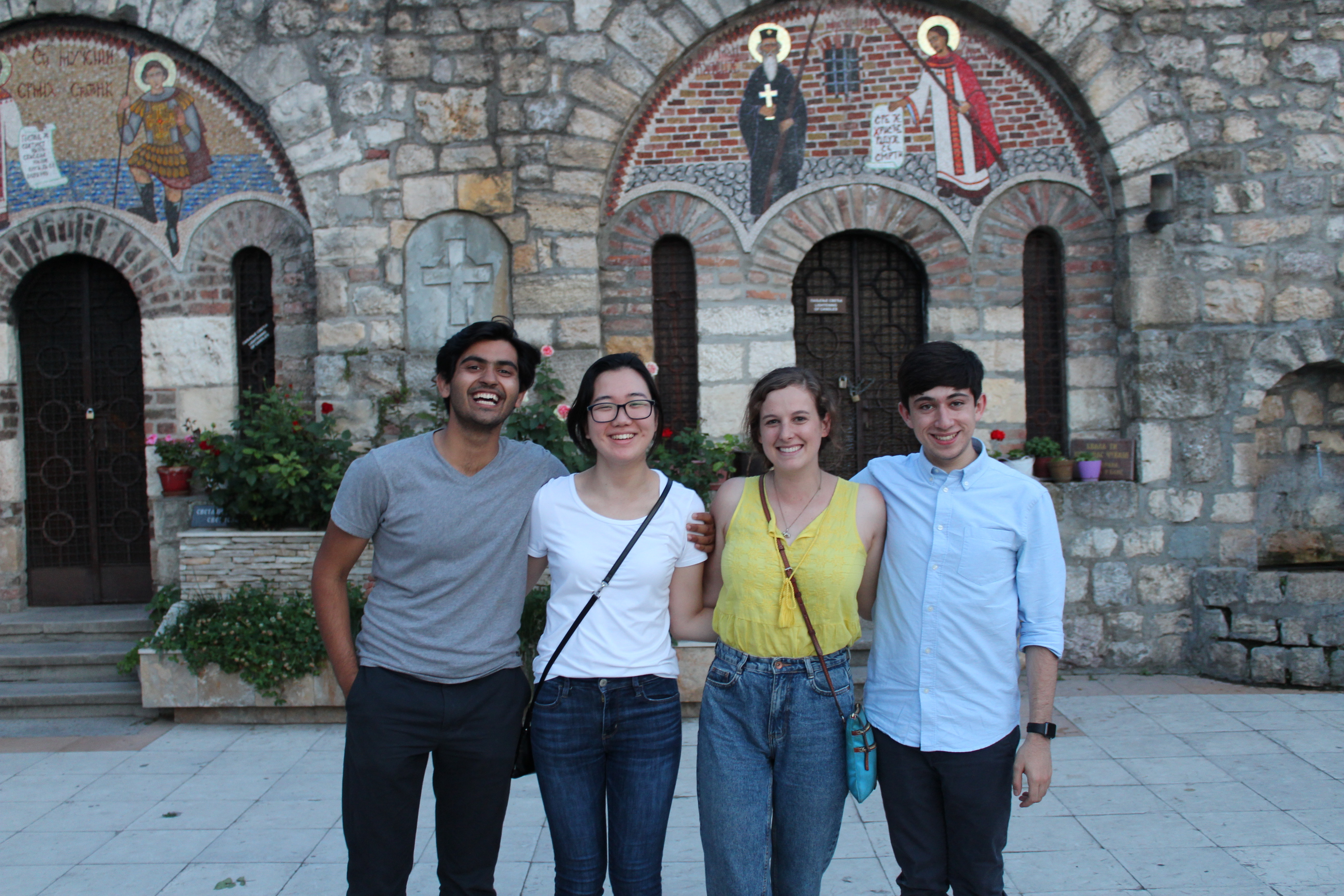By Sarah Palmer, CES Communications
Pablo Rasmussen ‘20 didn’t know what to expect when he found the list of European summer internships on the CES website. Dizzy with the prospect of living abroad, he applied to all of them. “I thought, you know, it’d be Brussels, Berlin, Paris, London. Right. I got the internship in Belgrade, Serbia.”
In 2018 with no experience in the region, Rasmussen headed to the Balkans to work for The Center for Applied Non-Violent Action and Strategies (CANVAS), a non-profit, non-governmental, educational institution focused on the use of nonviolent action. When not working, he was falling in love with the historically, culturally dense city of Belgrade. “You cannot go to a place like that and not have so many questions,” Rasmussen enthused. He still considers Belgrade to be one of the most interesting cities he has visited. The seemingly daunting task of heading to a foreign country to face new intellectual challenges was not unfamiliar to Rasmussen.
Born in Mexico City to a Mexican-Danish family, Rasmussen was surrounded by a mixing of cultures and languages. He remembers as a child watching his Danish grandfather reading the Mexican newspaper every day, “I would sit on the floor while he was reading. He would take the sections of the newspaper and put them down as he was finishing them. And I would just pick them up.” As he tried to understand the articles, his grandfather, a former diplomat for the Danish foreign service, would answer all his questions giving him an early insight into the world of politics, economics, and current events.

Even as he learned through listening, Rasmussen’s international family stressed the importance of travel. “They always had this big emphasis that you had to learn about the world through seeing it.
Rasmussen had an opportunity to learn about the world when at age eight he moved from Mexico to Oklahoma. “All of a sudden I was an immigrant growing up in a place that is not the most tolerant.” He only felt sure of his place in America when he found Youth and Government, a YMCA program that allows high schoolers to serve in model governments. “In this club, I wasn’t a Mexican immigrant. People didn't care where I came from. They didn't care about my background, they cared: Can I speak? Can I express my ideas?”The early lessons of his family came through, not only learning by experience, but also the importance of contextualizing issues through a broader internationalist lens. This meant connecting the policy issues of Oklahoma with possible international solutions. For his high school peers, it seemed strange to cite the policies of the European Union when talking about state policy, “to them it was apples and oranges, but to me it made sense.”When he arrived at Harvard in the fall of 2016, he quickly found people who didn’t consider the intricacies of domestic and international policy to be apples and oranges. The internship in Serbia brought him through the doors of CES. At CES he met more people with an “Atlantic mindset”, people who viewed the world from somewhere between Europe and the U.S.
In the summer of 2019, he engaged in another opportunity through CES to go to Strasbourg, France, and work as the Innovation Policy Intern for the European Ombudsman. Finally marrying his passion for Europe and government, he worked within the European Parliament building, although the European Ombudsman is an independent institution. Present right after the European elections, he was in the European Parliament for the first two plenary sessions. “It was a very nitty gritty, bureaucratic kind of analysis and then I’d go to lunch and see politics going on in the most exciting of senses.” These experiences helped guide him as he made bolder forays into the world of international affairs and European politics.Now as a new Harvard graduate, Rasmussen recalls a moment that helped shape his mindset going forward. While at the European Conference at Harvard, at which he was a constant attendee, he misheard a speaker who said the modern internationalist must be rooted, as in rooted in reality. “I heard rugged instead of rooted, and I thought that sounded so much better.”

He considered the rugged internationalist to be a multifaceted cultural pioneer who is forging forward through the complex wildness of global thought. “It’s the idea that in this world of exchanging from Harvard to DC to Belgrade, Strasbourg, Europe in general, but more broadly, even places like Oklahoma, we all have to be our own diplomats. I can say that I’m from Oklahoma; I have a Mexican family; I went to school, Harvard; I represent all of these things.” As he considers his own future, which is populated with new worlds to discover and fold into his understanding of the current political schema, he wants to represent, as an internationalist, “a little bit of this rugged fearlessness.”
Pablo Rasmussen is graduating this year with a concentration in Government and a secondary field in European History, Politics and Societies (EHPS), which is administered by the Minda de Gunzburg Center for European Studies (CES). He was a very engaged member of the CES community and the connection between Harvard and Europe. Among others, Rasmussen received two CES internship grants, participated in the inaugural Europe in Washington Workshop, and founded The Thomas V. Sullivan Society.